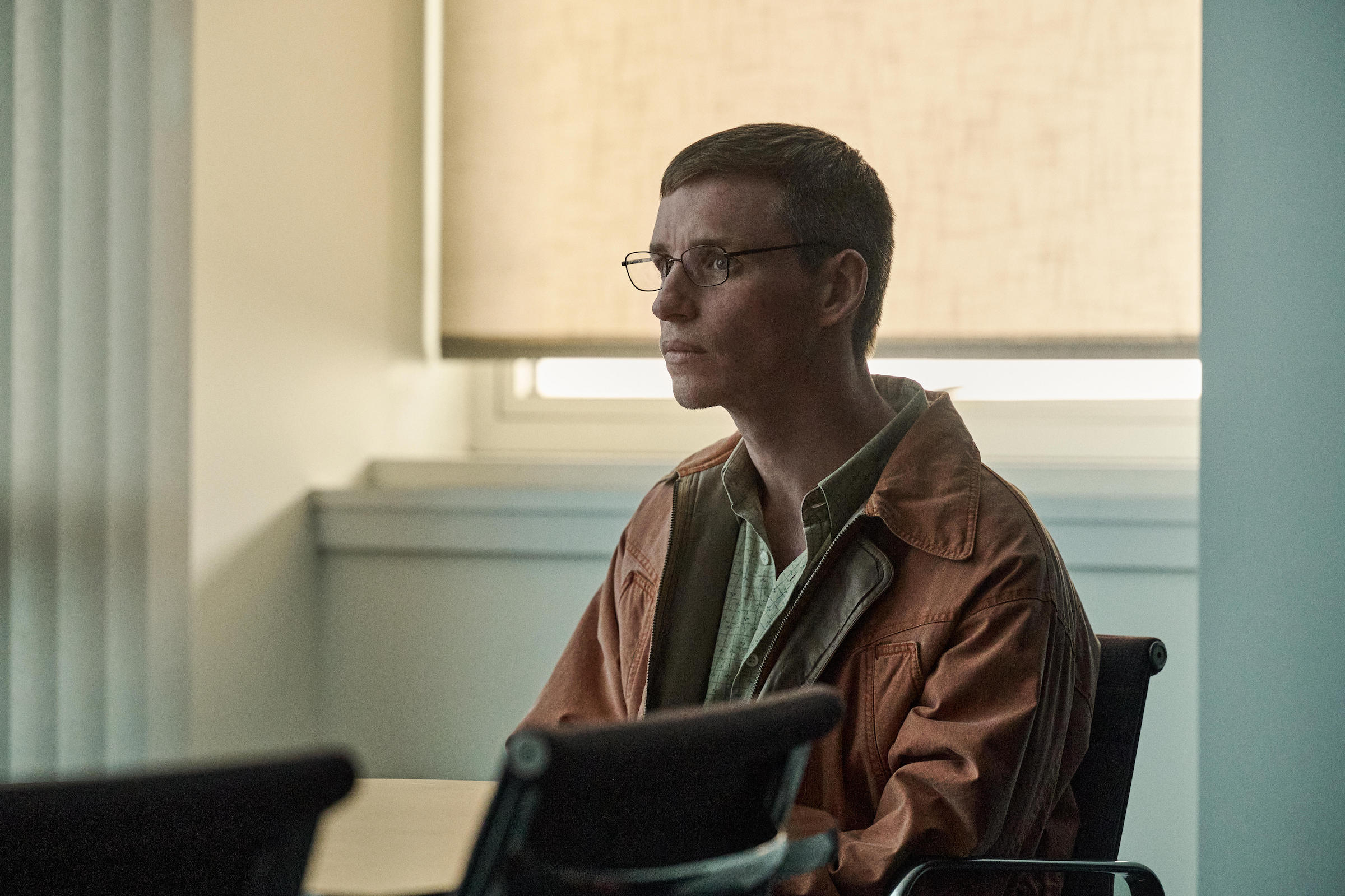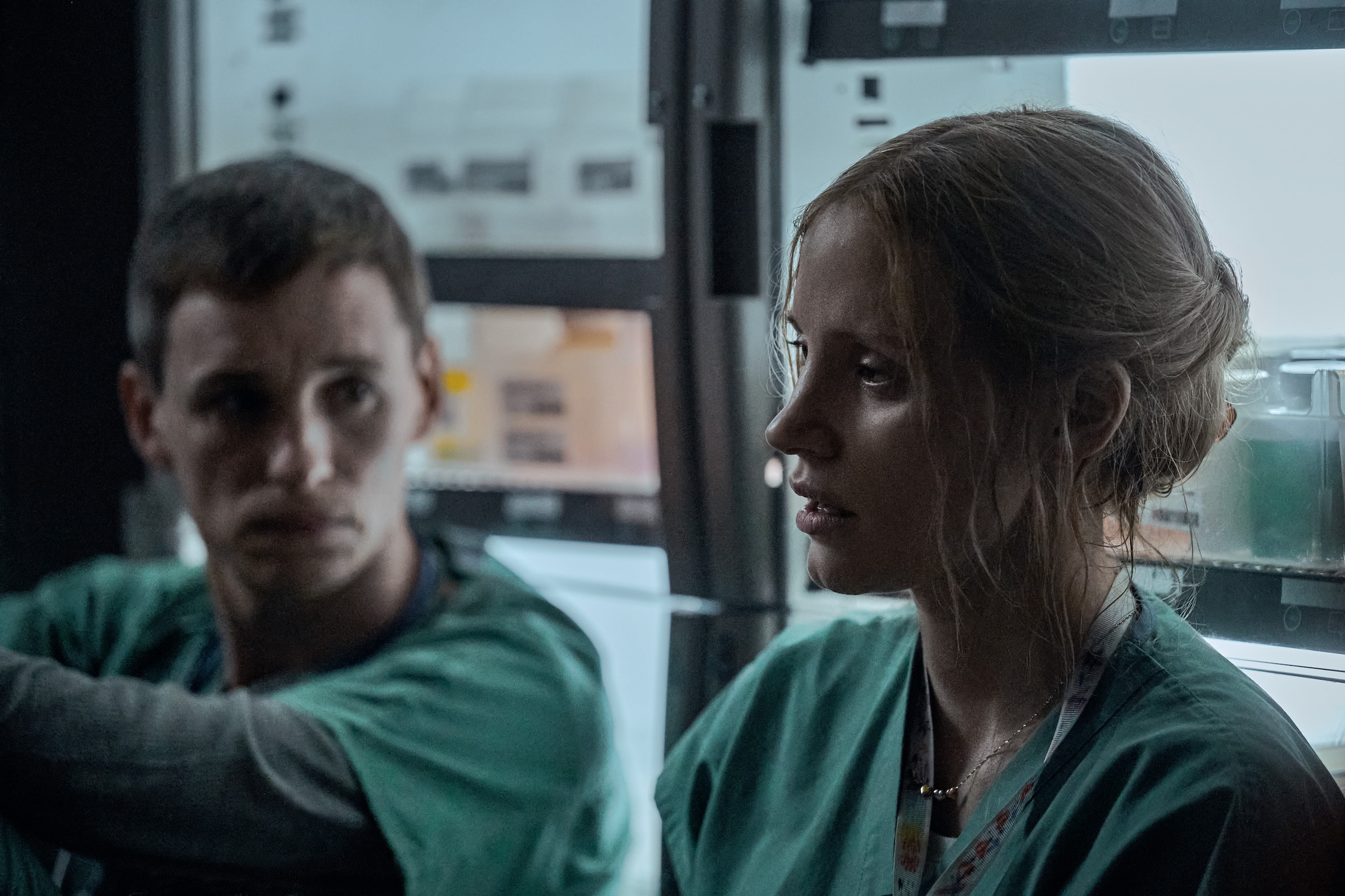Charles Cullen is a former registered nurse who worked in hospitals across New Jersey and Pennsylvania, where he assisted with procedures, tended to patients, and became one of America’s most prolific serial killers.
Over his 16-year career, Cullen is confirmed to have murdered 29 patients, and is believed to have killed as many as 400 people in total through multiple means, including covertly dosing them with drugs like insulin and digoxin. The story of how his crimes were finally uncovered is explored in the new Netflix film The Good Nurse, starring Eddie Redmayne as Cullen and Jessica Chastain as a fellow nurse Amy Loughren, and based on the book of the same name by Charles Graeber. Here’s what to know about Cullen, the story uncovered in The Good Nurse, and the medical true crime genre.
How Charles Cullen’s crimes were discovered
In a departure from many other titles in the true crime genre, The Good Nurse doesn’t focus its sympathies, or even much of its attention, on the killer. Instead, the film follows Loughren, a night-shift nurse and single mother of two who is struggling to manage a serious heart condition in the face of unrelenting overwork, when Cullen is hired to work alongside her. Relieved, she leans on and confides in him, and the two become friends—mirroring their real-life close relationship.
Soon after Cullen is hired, stable patients begin passing away under suspicious circumstances. A woman recovering from an allergic reaction who’s just found true love at 77 dies suddenly, before her husband can make it to her side. A young mother who’s survived an accident also dies unexpectedly—as do many more patients who were seemingly on the road to recovery. Neither patient is based directly on any of Cullen’s known victims, marking another departure from traditional depictions in true crime dramatizations, which often portray real victims and survivors. Writer Krysty Wilson-Cairns told the Los Angeles Times this choice was made to avoid potentially retraumatizing those Cullen victimized.

Flash forward seven weeks, and the hospital has called in the local police. Initially, police seem to feel they have better things to do than investigate the death, seemingly because the victim was elderly and already sick enough to be hospitalized. But after meeting with the hospital’s representatives, it becomes clear that she died under uncertain circumstances—and that the hospital administrators know more than they’re letting on, or are willing to share with authorities. It’s Loughren who first mentions to the police, during a routine interview as part of their investigation, that the deceased woman’s blood tests suggest an insulin overdose.
As the police continue to investigate and the hospital continues to obfuscate, Loughren comes to suspect her new friend of being behind the multiple suspicious deaths. She works with police to uncover evidence that Cullen is responsible, and following a tense meet-up at a diner during which Loughren wears a wire (based on a real life moment they shared), Cullen is finally arrested.
When asked about his motivations for murdering hundreds of people whose care was entrusted to him, Cullen gives a simple answer in the film: “They didn’t stop me.” In real life, Cullen claimed he committed his murders out of a sense of mercy. However, many of his victims had promising outlooks before he came into the picture—and all of them had the right, regardless of illness or disability, not to have Cullen decide based on ableist and ageist criteria whether they deserved to live or die.
Cullen pleaded guilty to 22 counts of murder in New Jersey and seven in Pennsylvania, as well as six counts of attempted murder. He is currently serving 11 consecutive life sentences, and won’t be eligible for parole until long after his own death.
Read More: Review: The Good Nurse Is a True-Crime Story Dressed Up with a Classy Sheen
The Good Nurse and the significance of medical true crime
True crime is complicated. For victims and survivors of violent crimes who are willing to revisit their stories through movies or podcasts can provide catharsis and an outlet for anxiety. But it can also lead to exploitation of survivors, victims, and their families (as in the case of Netflix’s Dahmer series), dangerous platforming of perpetrators’ dully bigoted beliefs, and a perpetuation of bias that has been used to uplift racist and carceral legislation. While true crime can be critical of the police for their failures in investigating or protecting survivors, it can also often uncritically lionize them, ignoring serious issues with police behavior. It also fabricates a sense of danger that defies the reality of crime statistics, which show that murder rates have overall trended down for decades, and that the most common victims of murder are not white women, as many a true crime podcast might have you think, but Black men.
True crime focused on medical malpractice can take on a different tenor from other classics of the genre, because of its focus on the disastrous shortcomings of the healthcare system. Between high costs for medical care, healthcare disparities that disproportionately impact marginalized groups, and the ongoing trauma of the pandemic, it’s not a surprise that trust in the healthcare system is at a low.

Nor is it surprising that the supply of stories from people who suffered mistreatment at the hands of the health care system is virtually inexhaustible, and primed to be spun into medical true crime. The story of Dr. Christopher Duntsch, a former neurosurgeon whose botched procedures routinely disabled or even killed his patients, was compelling enough that it was explored not only in an article, but also the Dr. Death podcast and television series. Stories like Duntsch’s and Cullen’s strike a nerve. Some are drawn to the high stakes, or the life-or-death situations. Some feel validated to see their own experiences of ableism and neglect reflected back to them. For many, medical true crime is compelling because it captures the very real sense of anxiety and outrage people have about the brokenness and inaction of the system.
Both in the film and in real life, Cullen’s victims were in danger the moment they entered the hospital. The Good Nurse consistently shows how overburdened the hospital is: in a conversation with her supervisor, Loughren learns they needed help, and Cullen was there to offer it. The fact that he was able to move from one facility to another, always slipping through the cracks just ahead of suspicion, with the very hospitals where he killed working to cover his tracks for fear of liability, demonstrates that the problem goes far beyond Cullen, Duntsch, or any other single person. Even Loughren herself was a victim of the system, working shifts that exacerbated the heart condition she was forced to hide in hopes of surviving long enough to qualify for health insurance and access treatment.
Read more: The 16 Best True Crime Books of All Time
The Good Nurse shows how desperate hospitals fail to look too closely at the people they’re hiring, both because they don’t have enough time, and because if they did they might discover reasons to say no, and realistically, they simply can’t turn down help. And in Cullen’s case, this was 17 years before COVID-19 would decimate the already dwindling number of nurses.
In the same way sentiments bolstering and bolstered by traditional true crime have contributed to often regrettable structural and cultural changes, those exacerbated by medical true crime might be pivoted from individual cases to the larger need for systemic change, and then to advocating for a better health care system.
More Must-Reads From TIME
- The 100 Most Influential People of 2024
- The Revolution of Yulia Navalnaya
- 6 Compliments That Land Every Time
- What's the Deal With the Bitcoin Halving?
- If You're Dating Right Now , You're Brave: Column
- The AI That Could Heal a Divided Internet
- Fallout Is a Brilliant Model for the Future of Video Game Adaptations
- Want Weekly Recs on What to Watch, Read, and More? Sign Up for Worth Your Time
Contact us at letters@time.com